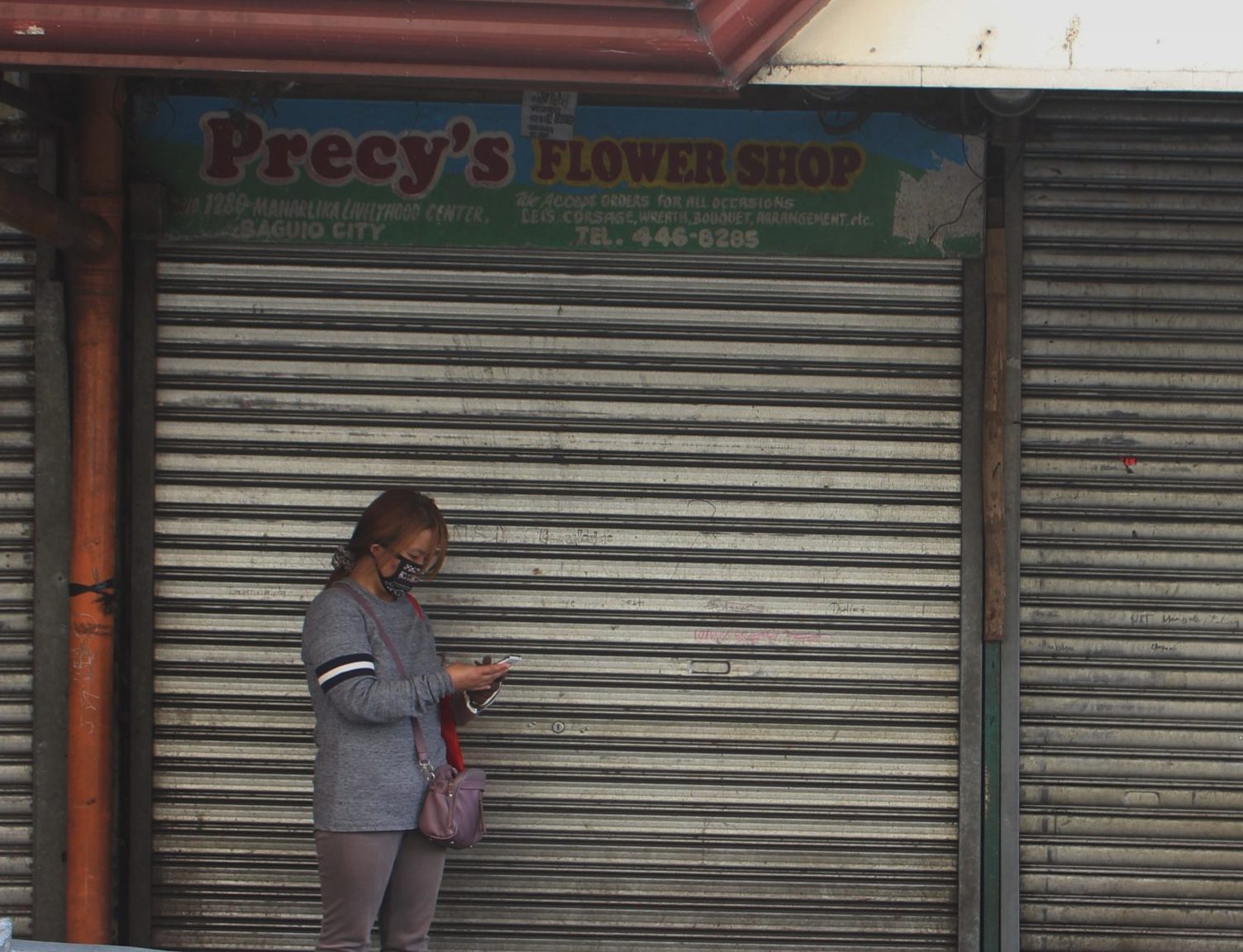
(FILE) NO BUSINESS Flower shops at the Baguio City public market have stopped operating due to the threat of COVID-19. —VALERIE DAMIAN
MANILA, Philippines — The government should convert the bulk funds for loan programs “lying unused” from state financial institutions into direct assistance to businesses hardest hit by the COVID-19 pandemic, Senator Imee Marcos urged on Thursday.
Marcos, the chairperson of the Senate economic affairs panel, recently led a hearing on the status of government programs aimed at helping pandemic-hit industries, underscored the need to provide direct subsidies to struggling businesses.
“We need to convert billions pumped into banks and other financial institutions into ‘ayuda’…and increased assistance to the unemployed through the Social Security System, plus other direct subsidies for digitizing, retrofitting, retooling, and retraining MSMEs (micro, small and medium enterprises),” Marcos said.
She said funds can be turned into assistance to be given by the Department of Social Welfare and Development or by the Department of Labor and Employment through its COVID-19 Adjustment Measures Program and Tulong Panghanapbuhay sa Ating Disadvantaged/Displaced Workers program.
According to Marcos, only P3.3 billion has so far been lent out from the P10 billion allotted to the DTI’s COVID-19 Assistance to Restart Enterprises program for MSMEs under the Bayanihan to Recover as One Act, which was enacted into law late last year.
The P6 billion earmarked for the hard-hit tourism sector, she said, may also remain unutilized, “until a more expansive vaccine roll-out takes place and tourist confidence returns.”
She added that funds provided by the Land Bank of the Philippines, Development Bank of the Philippines, and the Philguarantee Corporation are “similarly slow-moving.”
“We can solve the sluggish disbursement of billions in stimulus funds by converting part of the budget for loan programs in state banks and pension funds into more direct forms of assistance like wage subsidies and job programs,” Marcos said.
“For example, despite 65% of carinderias (neighborhood eateries) and small neighborhood shops having temporarily or permanently closed, this target group cannot access these loans, being mere barangay-level operations that are not qualified according to the requirements of the Small Business Corporation and the Department of Trade and Industry,” she added.
According to the senator, even micro, small, and medium enterprises (MSMEs) capable and ready to borrow will hesitate to avail of loans amid the pandemic.
“Until there is a clearer policy on imposing community quarantines, they will lack the confidence of being able to pay back,” she said.